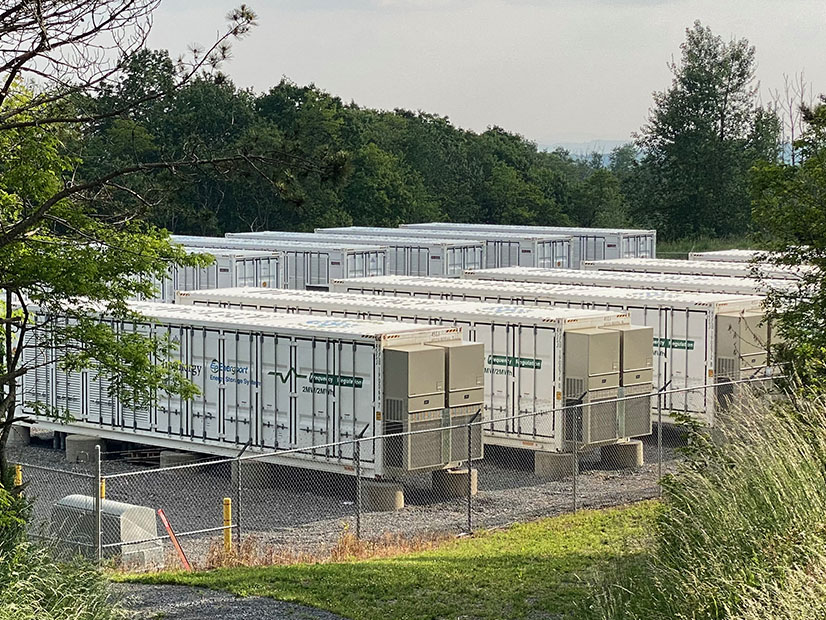The Connecticut Department of Energy and Environmental Protection (DEEP) Nov. 20 issued a request for information regarding the state’s solicitation of energy storage to help electrify its diesel vehicle fleets.
The RFI is connected to a DEEP request for proposals aimed at replacing fossil generation and facilitating the interconnection of vehicle charging infrastructure. From the RFP, the state will select storage projects in three categories: projects that enable the electrification of vehicle fleets; projects that are co-located at the site of an existing fossil steam unit; or projects that are connected to the grid without co-location.
The RFI concerns the diesel fleet category of projects and is intended to “build [DEEP’s] understanding of the expected locations, charging profiles, fleet size and other pertinent information from potential bidders proposing to install an energy storage system supporting diesel fleet electrification.”
It is part of the state’s efforts to deploy 1 GW of energy storage by the end of 2030, a goal set by state legislation passed in 2021. The state has emphasized the need for projects that reduce emissions in designated environmental justice communities.
“The RFP will provide ratepayer support to cost-effective storage projects,” DEEP wrote. “Cost effectiveness will include health effects from displaced emissions.”
Along with the RFI, the state announced the allocation of nearly $1 million of federal Diesel Emission Reduction Act (DERA) funding to replace old diesel engines with electric alternatives or cleaner combustion engines.
“Diesel-related air pollution continues to harm public health in Connecticut, especially in the low- to moderate-income communities across the state that have borne a historic and disproportionate impact from air pollution,” DEEP Commissioner Katie Dykes said in a statement.
Dykes called the new storage and vehicle opportunities “important tools to cost-effectively and reliably reduce air pollution, support healthier communities and encourage further electrification of the heavy-duty vehicle sector.”
DEEP is aiming to release a draft RFP “shortly” that will select up to 450 MW of nameplate storage capacity, capped at 250 MW for any individual project. One point of contention that has emerged in the RFP stakeholder process is the co-location of storage with existing fossil generators.
For RFP applications of storage co-located with existing fossil generation, DEEP is “tying the category to amending the air permits to significantly reduce the plants running in the summer when emissions from the plants are most harmful,” a DEEP spokesperson told NetZero Insider. DEEP will also require projects to provide a date of the fossil fuel plant’s retirement, “so EJ communities benefit without hurting reliability.”
In comments following a July technical session, Cary Lynch, climate and energy policy manager for the Connecticut chapter of the Nature Conservancy, argued that incentivizing storage that is paired with existing fossil generation “will not help the state meet its decarbonization target and will only delay the retirement of older, dirty fossil fuel generation plants. … Pairing storage with Class I renewables should be prioritized. … Building and strengthening our renewable energy portfolio is critical to creating a clean, reliable and affordable electric grid.”
In other public comments after the meeting, several battery storage companies noted the difficulty of assessing and establishing fair and cost-effective compensation for co-located storage facilities within the context of ISO-NE market rules and the capacity commitments of fossil fuel generators.
Commenters including BlueWave, FirstLight Power and RENEW Northeast expressed concern about whether supporting co-located storage facilities would meaningfully decrease the site’s fossil generation beyond already existing policies and trends.
“We are concerned the current proposed structure may ask ratepayers to subsidize more expensive storage than is needed under the guise of emissions benefits when co-located storage is electrically indistinguishable from standalone storage,” RENEW wrote in July.
In BlueWave’s July comments, the company encouraged DEEP “to focus this solicitation on the deployment of cost-effective energy storage that will prepare the electric grid for the retirement of fossil plants and erode the economic rationale for all fossil generation in the state.”
Potential bidders for the diesel-fleet category of the RFP will need to submit responses to the RFI by Jan. 5 to be eligible for the RFP. Applications for the DERA funding are due by Dec. 15.




